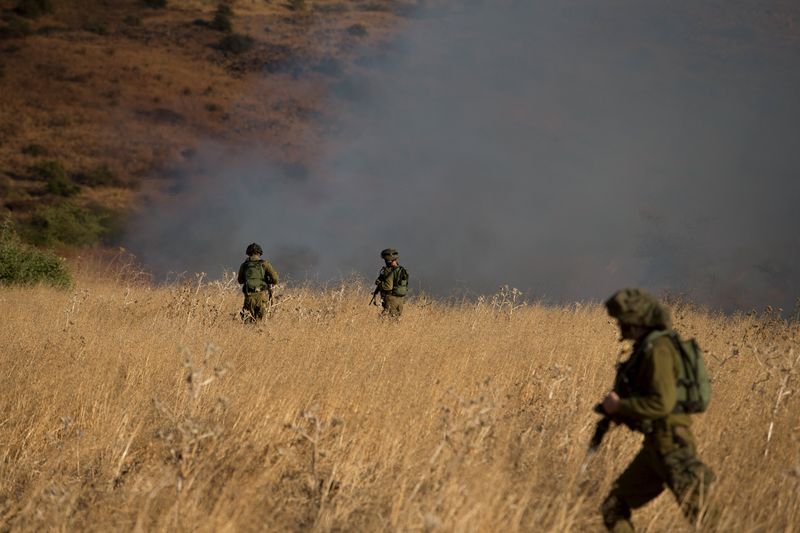Investing.com - A significant escalation of violence was witnessed between Israel and the Palestinian group Hamas, putting the Middle East on the brink of a major war. This comes after Israel experienced its deadliest day in decades, with Hamas fighters launching attacks in Israeli towns, leading to hundreds of casualties on both sides.
The conflict showed signs of spreading beyond the confines of the Gaza strip, as Israel and Hezbollah, the Iran-backed militia from Lebanon, exchanged artillery and rocket fire. Meanwhile, two Israeli tourists and their Egyptian guide were tragically killed in Alexandria.
Israeli airstrikes targeted several locations in Gaza, including housing blocks, tunnels, a mosque, and the homes of Hamas officials. These strikes resulted in the death of over 300 individuals, including 20 children. Israeli Prime Minister, Benjamin Netanyahu, pledged a harsh response to these attacks.
Hamas fighters continued to engage with Israeli security forces 24 hours after the initial assault, which involved rocket barrages and attacks on army bases and towns. This attack resulted in the death of at least 600 people, as reported by Israeli television, and led to the abduction of dozens more.
The Israeli military, despite facing criticism for not preventing the attack, claimed to have regained control of most infiltration points along security barriers and to have neutralized hundreds of attackers.
The assault by Hamas is considered the deadliest incursion into Israel since the Yom Kippur war 50 years ago. This conflict has the potential to destabilize the recent U.S.-backed moves towards normalizing relations between Israel and Saudi Arabia, which could impact Palestinian hopes for self-determination and restrict Hamas' main supporter, Iran.
The aftermath of the attack left southern Israeli towns and border communities in disarray, with debris scattered across streets and homes. Palestinian fighters managed to escape back into Gaza with dozens of hostages, including soldiers and civilians.
These events add another layer of complexity to Prime Minister Netanyahu's position. In the past, hostage situations have led to the exchange of many Palestinian prisoners.
Further rocket attacks from Hamas were launched into Israel on Sunday, prompting the Israeli military to initiate an evacuation of border areas while continuing to search for more gunmen.
Netanyahu's security cabinet approved measures to undermine the military and governmental capabilities of Hamas and Islamic Jihad, another militant group claiming to hold captives. These measures include cutting electricity, fuel supplies, and the entry of goods into Gaza.
The retaliatory strikes from Israel have killed 313 people in Gaza and wounded nearly 2,000 others. The United Nations' Palestinian refugee agency reports that over 20,000 Palestinians in Gaza have sought refuge in schools run by the UN.
The situation deteriorates amidst increasing violence between Israel and Palestinian militants in the Israeli-occupied West Bank. The Palestinian Authority has called for an emergency Arab League meeting in response to worsening conditions under Netanyahu's government.
Hamas leader, Ismail Haniyeh, warned that the assault that began in Gaza would spread to the West Bank and Jerusalem.
In the north, Lebanon's Hezbollah claimed responsibility for a rocket and artillery attack on the Shebaa Farms, a region occupied by Israel since 1967 that Lebanon claims as its own.
International response has seen Western countries, led by the United States, denouncing the attack. President Joe Biden issued a stern warning to Iran and other hostile parties not to exploit these attacks.
This unexpected escalation has been regarded as one of the most significant intelligence failures in Israel's history, catching the nation off guard. The Tel Aviv Stock Exchange (TASE:TASE) indexes fell 6% on Sunday, leading investors to anticipate a shift towards gold and other safe-haven assets.
